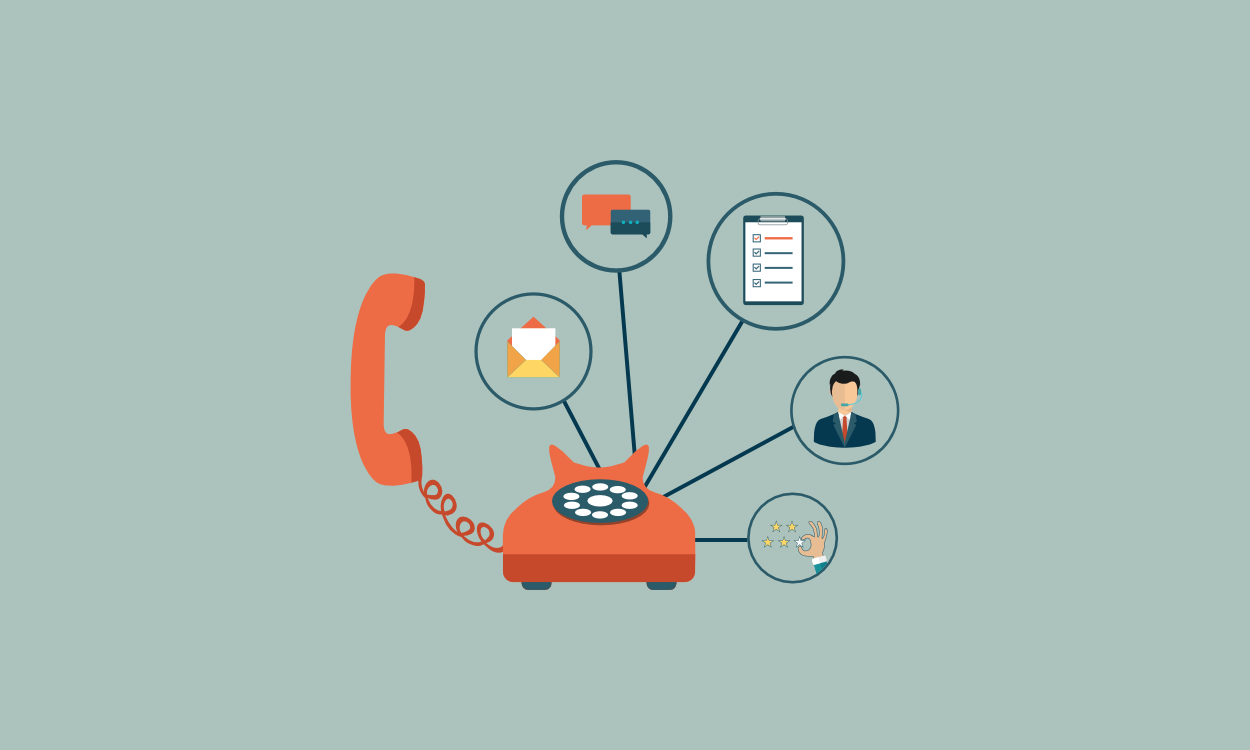
Interactive Voice Response is known as IVR
An automated phone call operating system called Interactive Voice Response (IVR) receives a call, screens the caller, then routes the call in accordance with the responses.
IVR systems are beneficial to companies of all sizes, and the most of us have undoubtedly encountered one while phoning a firm for assistance or sales information. The instructions could be as simple as, “Press 1 for sales. Press 2 for assistance.” maybe much more creative. While some IVR systems use voice recognition technology, others use touch tones from phones to route calls and deliver information. Even without waiting for a phone professional to answer, questions from callers can be handled using IVR systems.

IVR: Who Uses It? What is It Used For?
IVR is used in many sectors. IVR is used by and beneficial to small organizations as well, despite the fact that most people might identify it with larger companies or even enterprises (such airlines, financial institutions, and healthcare facilities). Even telephone surveys or polls on customer service experiences, potential new features that customers might want, and even how customers learned about a firm are conducted by certain businesses using IVR.
Caller-Specific Instructions
When the system detects a caller’s number, certain IVR systems provide customized prompts. The user experience is enhanced and users are assisted in completing the task they called about by these tailored prompts.
For instance, both American Express and Delta make use of customized prompts. Following a successful identity check, Delta calls a number it recognizes and inquires about the caller’s impending travel plans. Even when a caller has already started a process in his or her online account, American Express asks if they would like to finish it over the phone.
For a successful user experience, personalized prompts don’t have to go as far as those from AmEx or Delta. One of the major advantages of personalized prompts with IVR is the simple ability to anticipate caller requests.
Automated Messages
There are various use for prerecorded messages. Inform callers of any changes they should be immediately informed of, such as closures due to bad weather or other vital communications. Inform them of upcoming sales and other crucial information. Pre-recorded messages can also just imply that a more pleasant voice instead of a robotic tone delivers the message to callers.
Obtaining details about callers
IVR can assist in gathering that information and carrying out call activities appropriately if you need to qualify leads or learn more about callers before knowing where to effectively route them. Calls that are identified as recurrent callers can be routed to support even if the number is new and can be sent to sales if it is.
Faster service at periods of peak call volume
Businesses with high call volumes might not have enough phone agents to deal with the volume of incoming calls. IVR makes ensuring that when a customer contacts a company, the phone is answered as opposed to ringing continuously or connecting them to voicemail. The IVR can route calls to the department that will best meet a caller’s needs, keep callers in a queue until the next agent is available to accept their call, and even make sure that callers don’t feel forgotten.
Calls Are Forwarded to the Proper Department
Customers can choose the department that best suits their call by using an IVR, which is a benefit. There is a greater likelihood that whatever the caller is calling about will be quickly and effectively resolved when the caller is sent to the right department. There is nothing more annoying than calling a company for assistance with a problem only to be sent from department to department while you wait on hold for a call representative to determine which area best meets your needs.
Late-Night Callers
In the absence of a call person at your company, an IVR can direct customers to information that could be accessible to them. With an IVR, many firms are able to answer calls even after typical business hours. An IVR can direct a caller to the voicemail of the person who can handle the matter first thing the next morning if they need specific information that a recording is unable to deliver.
Best Practices for IVR
When employing an IVR, businesses should make sure they’re following best practices to make sure calls are routed appropriately and callers aren’t annoyed by the procedure. Businesses that use IVR should make sure they have considered every possible reason a client would call. Nothing makes a caller angrier than being forced to select a choice from an automated menu that doesn’t correspond to the reason they picked up the phone in the first place. IVR can be viewed by businesses as an expansion of the self-service experience. Companies need to know when to intervene to guarantee users have the best experience so they keep clients once consumers have advanced beyond what they can achieve on their own.



